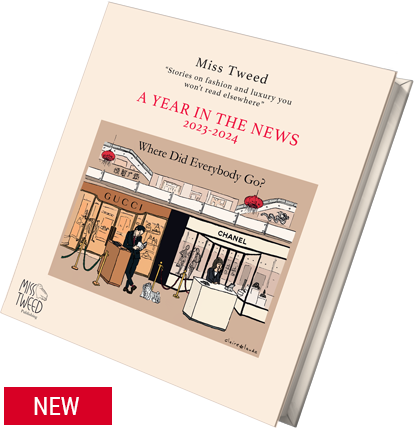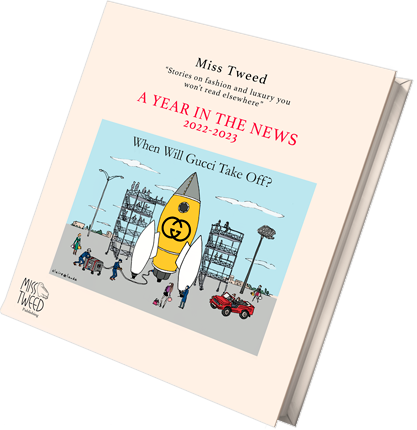Just as fashion and luxury brands were starting to get excited about the potential of new digital immersive virtual universes, NFTs (or non-fungible tokens), and the whole crypto powered economy, China has pulled the emergency brake.
Beijing this week put a blanket ban on all crypto transactions, which they regard as a threat to its financial stability. That sent the value of Bitcoins tumbling down as much as 9 percent. China is already trying to avert a systemic risk — a run on the banks — from another threat, the potential unwinding of some $300 billion of debt held by Chinese real estate developer Evergrande.

This article is for subscribers only
True journalism, like goldsmithing and embroidery, relies on expertise.
Miss Tweed only focuses on proprietary information and analysis. By subscribing, you support a team of journalists who work only for you. Our mission is to bring you reliable and accurate information on the luxury and fashion industry which, in 40 years, has become one of the pillars of the global economy.
Subscribe
Login

A Year in the News 2023-2024 is a compilation of Miss Tweed's stories published during its fourth year. Like the third yearbook, it is a limited edition. Hence, it is a collector's item. It's designed to celebrate the work of illustrator Claire Laude. Each illustration runs next to the first two paragraphs of the story. It does not contain the entire story.
25 €

A Year in the News 2022-2023 is a compilation of Miss Tweed's stories published during its third year. Like the second yearbook, it is a limited edition. Hence, it is a collector's item. It's designed to celebrate the work of illustrator Claire Laude. Each illustration runs next to the first two paragraphs of the story. It does not contain the entire story.
25 €

A Year in the News 2021-2022 is a compilation of Miss Tweed's stories published online during its second year. Like the first yearbook, it is a limited edition. Hence, it is a collector's item. It is designed to celebrate the work of illustrator Claire Laude. Each illustration runs next to the first two paragraph of the story. It does not contain the entire story.
25 €

This book is a compilation of Miss Tweed’s stories during its first year. The digital revolution, the closely guarded secrets of LVMH, Richemont and Kering and the future of watchmaking are among the many topics Miss Tweed covered between the summer of 2020 and the summer of 2021. It does not contain the entire story.
25 €

Author and journalist Astrid Wendlandt conducted a four-year investigation into the
secretive world of fashion and luxury involving hundreds of interviews with top executives and
designers.
25 €

Comment l’industrie du luxe et de la mode, quasi-inexistante il y a quarante ans, est
devenue une puissance mondiale ? Dans cette anthropologie du glamour, la journaliste Astrid Wendlandt
épingle ses super-héros et analyse ses contradictions.
22 €
















